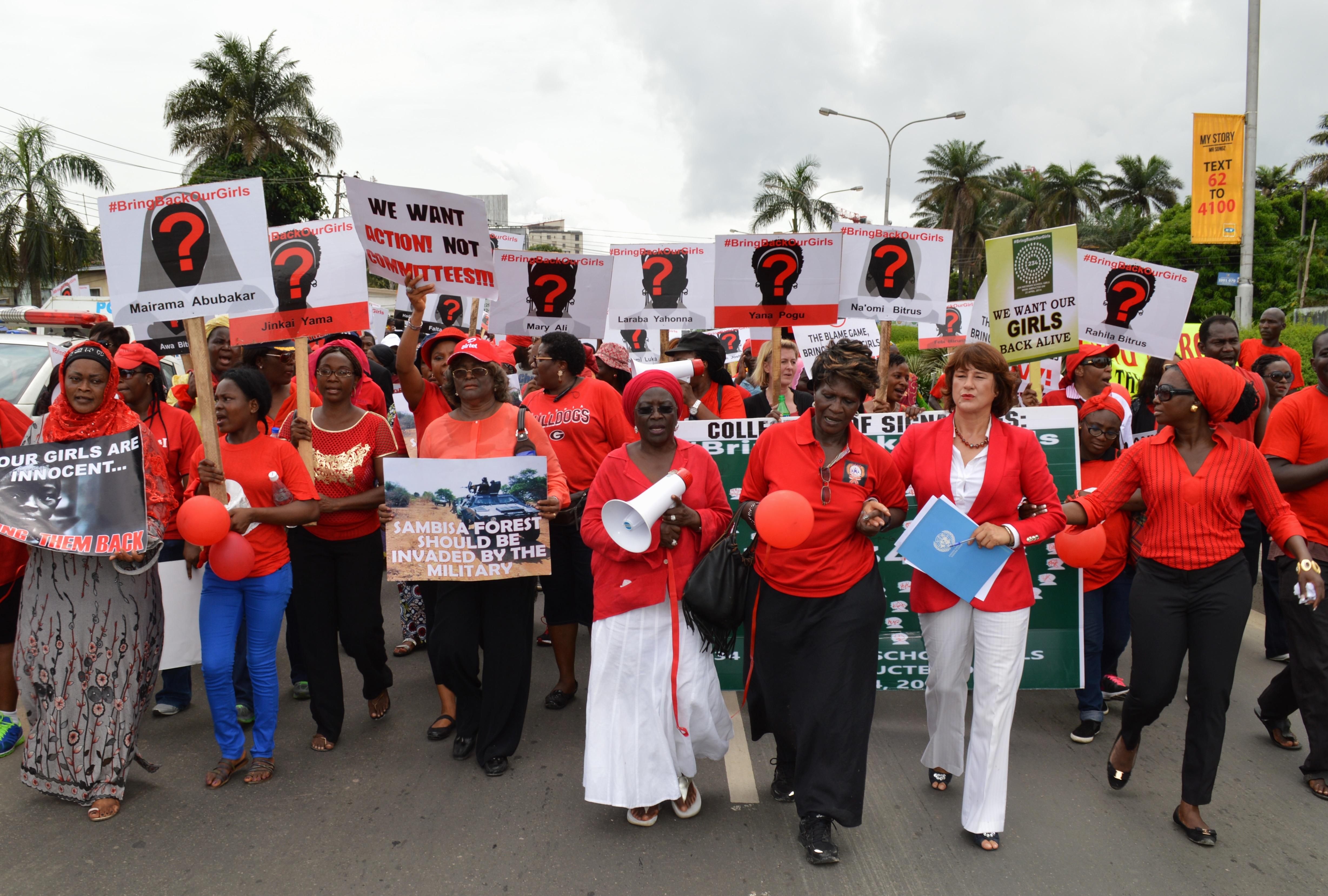An Analysis Of Chapter Nine Of The Global Study: Countering Violent Extremism While Respecting The Rights And Autonomy Of Women And Their Communities
By Naimah Hakim

Rally in Lagos, Nigeria, calling for the rescue of abducted school girls (Photo: UN Photo)
Chapter nine of the Global Study on the Implementation of UNSCR 1325 examines the complex relationship between gender and violent extremism. From Daesh/ISIS to Boko Haram, rises in violent extremism often result in systematic attacks on the rights of women and girls, including rights to education, access to public life, and protections from targeted sexual and gender-based violence (SGBV). Media coverage around violent extremism often portrays women as victims, rather than as powerful agents of change. The Global Study calls for strengthened action to prevent, rather than just combat, violent extremism by strengthening investments and action for gender equitable human rights and development as well as independent support for women led civil society, that is delinked from counter-terrorism agendas.
Facts and Figures:
- The advance of extremist groups has been coupled with attacks on the rights of women and girls— rights to education, to public life, and to decision-making over their own bodies. For example, kidnappings of women and girls have come to constitute a deliberate tactic of Boko Haram including in order to lure security forces into an ambush, force payment of a ransom, or for prisoner exchange (Global Study 2015, 223).
Women are often on the front lines of preventing and countering violent extremism. However, where women’s advocacy becomes too closely associated with a government’s counter terrorism agenda, the risk of backlash against women’s rights defenders increases (Global Study 2015, 226).
The response to violent extremism and acts of terror has been primarily through the use of force. However, in many countries, counter-terrorism legislation and newfound security practices deeply compromise women’s rights and international humanitarian law (Global Study 2015, 227)
Key Recommendations:
- Detach programming on women’s rights from counter-terrorism and extremism, and all military planning and military processes. Any effort at empowering them should be through civilian assistance to the women themselves or to development and human rights agencies (Global Study 2015, 231).
Protect women’s and girls’ rights at all times and ensure that efforts to counter violent extremism strategies do not stereotype, instrumentalize or securitize women and girls (Global Study 2015, 231).
Work with local women and institutions to engage women at all levels, and allow local women autonomy and leadership in determining their priorities and strategies in countering extremism (Global Study 2015, 231).
Develop gender-sensitive disengagement, rehabilitation and reintegration programs that address the specific needs of women and girls. Draw upon the lessons learned from disarmament, demobilization, and reintegration (DDR) initiatives under the women, peace and security agenda (Global Study 2015, 231).
For more information, see UN Women’s Global Study Factsheets or the entire Global Study on Women, Peace and Security.
